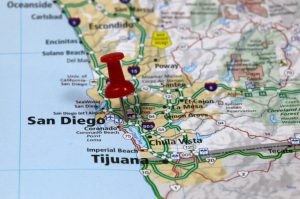Where our oil comes from U S. Energy Information Administration EIA

This CPE course takes a close look at the intricate world of oil and gas accounting, designed to equip you with the bookkeeping skills and knowledge to navigate this specialized industry confidently. It covers a wide array of topics, including the successful efforts and full cost methods, reserve reporting, unit of production method, severance taxes, and joint interest accounting. These topics are crucial for understanding the unique accounting issues in the oil and gas industry. Accurate accounting helps in valuing these reserves, determining depletion, and providing insights into the company’s overall asset base, influencing strategic decisions and financial planning.
- Accurate accounting helps in valuing these reserves, determining depletion, and providing insights into the company’s overall asset base, influencing strategic decisions and financial planning.
- IFS Merrick – eVIN provides data entry, industry measurement calculations, and other data processing, as well as data verification and validation from all entry sources.
- This online CPE class also provides a detailed look at various cost classifications, production costs, and the documentation and accounting processes involved in oil and gas operations.
- You measure the company’s reserves (how much they have on their balance sheet, ready to extract, produce, and sell) and production (how much they produce and sell each day, month, quarter, year, etc.) in these units.
- The obvious example is mining, where there’s a lot of overlap, but almost anything that depends on commodity prices is similar.
- This principle emphasizes the need to keep personal and business transactions separate.
Accounting for extractive activities – Oil & gas
Oil and Gas Production Accounting teaches the basics of petroleum production accounting as it relates to the petroleum industry. These principles, among others, provide the foundation for financial reporting under U.S. GAAP is dynamic, and the FASB continually updates and issues new standards to address emerging issues and improve the quality of financial reporting. All oil and gas companies are expected to stay current with the latest accounting standards to ensure compliance with U.S.

Analysis & Projections

Revolutionize the way your company does business with IFS Merrick, the leading production solution in upstream oil and gas. Hundreds of operators across every major shale play rely on IFS Merrick for complete production automation and full management of well performance. When it comes to oil and gas companies, everything revolves around how they treat capitalized costs. It is widely used in oil, gas, mining, and other commodity-based sectors, and it often produces more accurate results than the standard DCF analysis.

Also on Energy Explained

On May 28, 2014, the FASB and IASB issued their final standard on revenue from contracts with customers. The standard outlines a single comprehensive model for entities to use in accounting for revenue. This section dives into the changes in the key accounting issues due to the new revenue recognition standard. PwC US Energy practice provides audit and assurance, tax, advisory, and consulting services to help energy businesses address key issues. Financial statements should include all necessary information to ensure that users can make informed decisions. Under this principle, notes to the financial statements, supplementary disclosures, and other relevant information should be included.
- Information is considered material if its omission or misstatement could influence the economic decisions of users.
- Stakeholders rely on financial statements to assess the financial health of oil and gas companies.
- This doesn’t really affect the income statement, but you do need to add back deferred taxes on the cash flow statement.
- The three major oil and gas accounting fields are upstream, midstream, and downstream.
- As oil and gas reserves are extracted, companies need to allocate the costs of acquiring and developing these reserves over time.
Yet the endemic lack of talent shared with many industries requiring engineering, procurement and construction skills, is creating additional pressures in the management of complex capital project execution. By understanding the different steps in exploring, developing, and producing oil and gas properties, you’ll be production accounting oil and gas better positioned to handle the complex accounting requirements of this sector. This online CPE class also provides a detailed look at various cost classifications, production costs, and the documentation and accounting processes involved in oil and gas operations.
